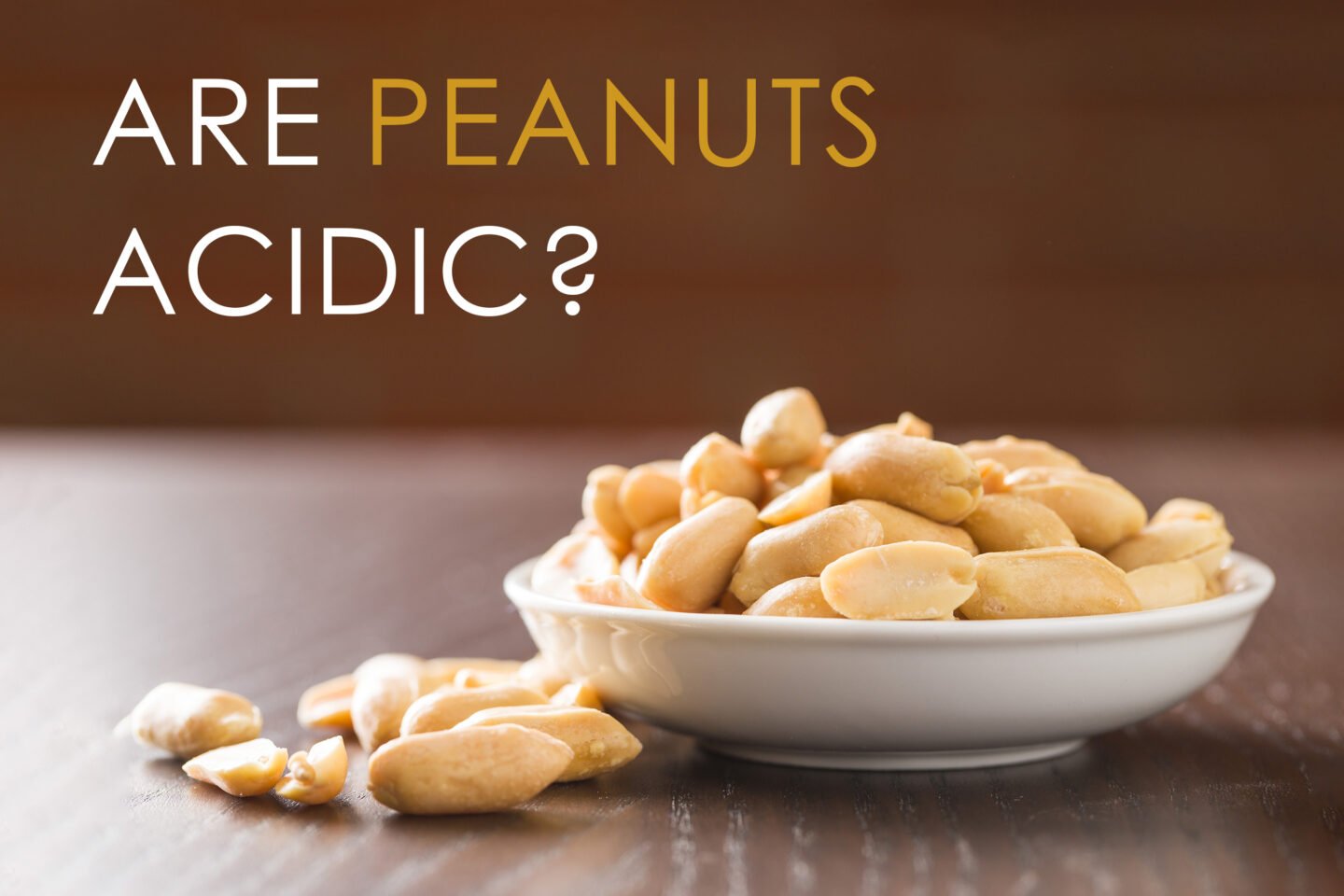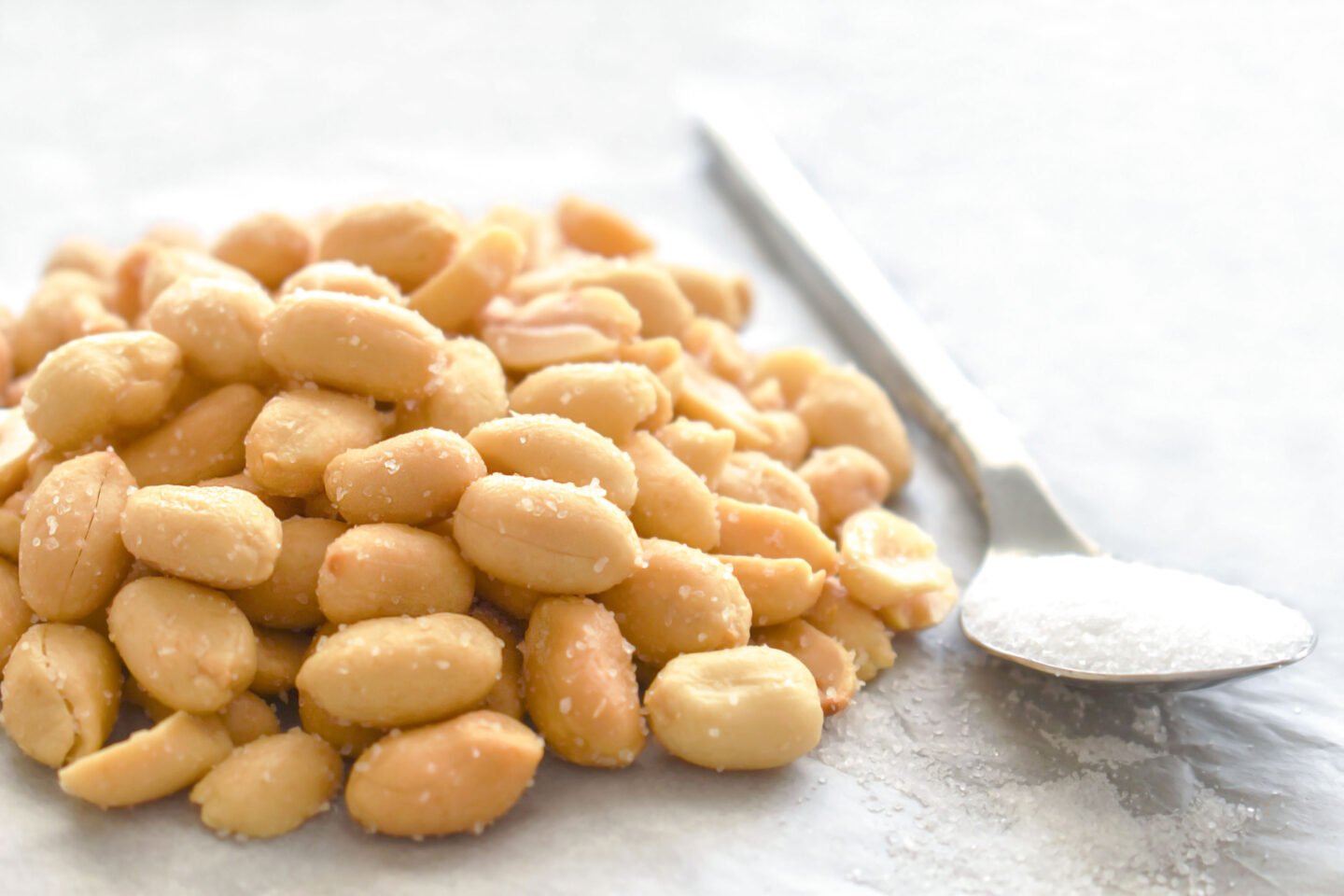Back in science class, you learned about the pH scale and how certain things are acidic while others are neutral or alkaline.

Eating acidic foods won't cause any significant health issues; however, eating large amounts of these foods can cause some problems.
Peanuts are tasty and, overall, pretty good for you. If all foods fall somewhere on the pH scale, are peanuts acidic?
Table of Contents
Are Peanuts Acidic or Alkaline?
Raw and roasted peanuts are both slightly acidic. Raw peanuts have a pH of 6.87, while roasted are a little more acidic with a pH level of 6.32.
Related articles:
What Does The pH Level of Peanuts Mean?
When you think of acidic foods, you probably think of sour foods or candies. Peanuts are not sour, so what does their pH mean?
The pH scale runs from one to fourteen. If a food has a pH level of between 1 and 6.99, it's acidic. A level from 7 to 7.99 is neutral, and 8 to 14 is alkaline.
Since raw and roasted peanuts have a pH rating close to 7, they're practically neutral. That's why you can't tell peanuts are acidic from their taste.
Will Eating Peanuts Give You Acid Reflux?

Eating and drinking acidic foods or drinks could give you acid reflux, which can be painful and frustrating.
Since peanuts are technically acidic, can they give you acid reflux?
It's unlikely you'll get acid reflux from eating peanuts. Their pH is so close to the neutral range that they're barely acidic.
Even if you're prone to acid reflux or heartburn, you should be okay enjoying peanuts. You would have to eat a huge amount to provoke either of these reactions.
Are Peanuts Healthy?
Peanuts are generally considered healthy, despite their slight acidity. They are rich in protein, vitamins, and healthy fats. Protein and healthy fat can help you feel fuller for longer.
As they're high in protein and healthy fats, they're a fantastic snack for those trying to lose weight.
However, peanuts are high in calories, so eating too many in one day can negatively affect your weight loss journey.
Peanuts contain plenty of Omega-6, which is great for improving brain function, maintaining bone health, and keeping skin and hair healthy.
Studies have shown that eating peanuts can help decrease your risk of heart disease by helping to lower your cholesterol levels.
Another health benefit of these delicious nuts is that they pose little risk to diabetics. They're a low-glycemic food, so they won't cause your blood sugar levels to spike.
Eating peanuts regularly has been shown to reduce women's risk of type-2 diabetes.
Peanuts are an excellent source of fiber, which can help reduce inflammation and aids your digestive system.
READ NEXT: 15 Alkaline Foods You Should Include In Your Diet
Where Do Peanuts Come From?
Peanuts are not genuine nuts; they're legumes. Unlike nuts such as walnuts and pecans that grow on trees, peanuts grow underground.
Peanuts are native to the western hemisphere but can grow anywhere in a subtropical or tropical environment.
There's evidence, including fossils, artifacts, drawings, and pottery in the shape of peanuts, that peanuts came from South America. These suggest that peanuts were very important in ancient South America; however, scientists aren't entirely sure of their origins.
Don't know what to drink? Check out these articles: 20 Most and Least Acidic Juices and 20+ Alcoholic Drinks Ranked by Acidity Level
Did you know that the average person in the United States consumes about six pounds of peanuts annually? It sounds like a lot, which it is, but half of this is in the form of peanut butter.
Peanut butter has a pH of 6.3, making it about as acidic as roasted peanuts. Different brands of peanut butter may have different pH levels, but generally, they're all slightly acidic.
